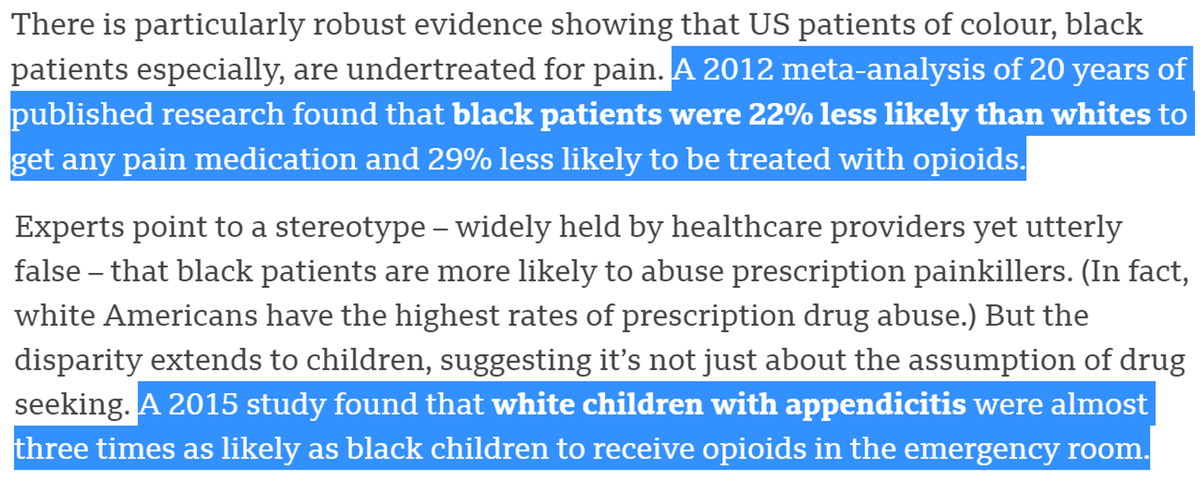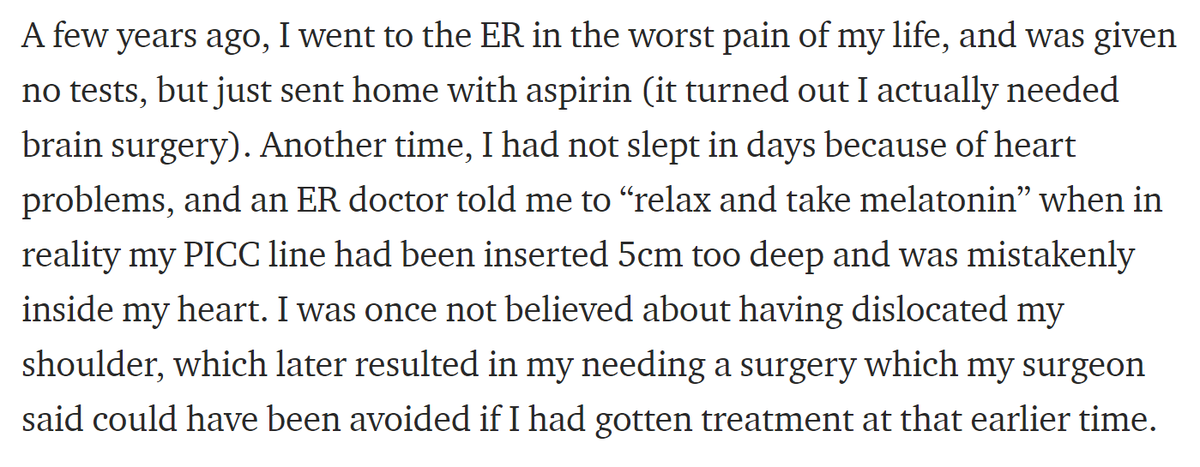- Medical data can be incomplete, incorrect, missing, & biased
- Medical system is disempowering & often traumatic for patients
- Crucial to involve patients & to recognize risk of how ML can end up further disempowering 1/
Result: longer time delays, lower quality of care, & worse outcomes 2/
bbc.com/future/article…

longreads.com/2019/06/21/yen…
also: bbc.com/future/article…

Diagnosis of Crohn's disease takes 12 months for men, 20 months for women
Diagnosis for Ehlers-Danlos syndrome takes 4 years for men, 16 years for women 5/
Links for tweet 5:
psmag.com/social-justice…
bbc.com/future/article…
medium.com/@racheltho/the…

theverge.com/2018/3/21/1714…
Participatory ML seeks more democratic, cooperative, & participatory systems. Please read this thread for more: 12/
Patients have a set of skills and expertise that is distinct from doctors. 14/
Race, gender, class, weight, sexuality, & many other factors will impact your ability to do so, or what contortions may be required





